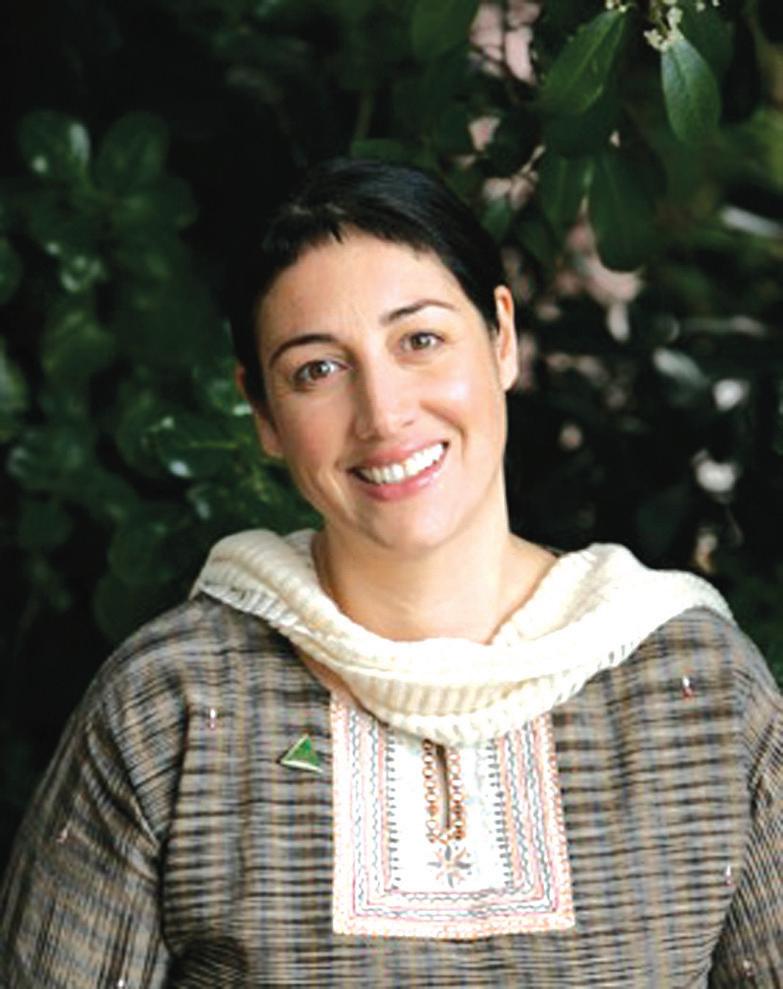
10 minute read
2010 elections
from 2010-08 Melbourne
by Indian Link
in the Watson electorate of Sydney’s inner west is 26 yearold Mayank Mark Sharma - an Independent contestant of Indian ethnicity. Though Mark has a background in Marketing with a degree in Accounting, he has always been passionate about local and global politics. Following the subject closely since his teens, Mark decided to actively plunge into frontline politics after being disillusioned with both Liberal and Labor
“Even prior to taking up Australian citizenship, I was on the streets campaigning for the Liberal party. But I am now running as an Independent because of their stance on immigration. I believe in a fair and transparent immigration policy,” says the former Delhi boy who looks upon Sardar Vallabhai Patel as his political role model.
An avid socio-political blogger and netizen, he is, in fact, a man on an express mission – to teach Labor a lesson “so that no politician ever takes his voters for granted!”
Condemning the Visa Capping Bill, Mark who currently serves on Burwood Council’s Multicultural Committee, believes that immigration cuts and the new Sustainable Australia tagline will hurt the economy.
“It is nothing but fear-mongering by Gillard and Abbott in the lack of real issues,” he declares.
“Sustainability is like a side dish which political parties and lobby groups use on almost anything; be it population, environment or any other,” he argues.
“In reality, Australia needs a younger skilled population. The Visa Capping Bill is unfair, unjust and discriminatory, and gives way too much power to Immigration Minister,” he states categorically. When someone has already undergone the legal process, why should they arbitrarily suffer, he asks. So that Labor and Liberals can win marginal seats?
“The Bill is targeted against skilled Indian applicants. With all the media coverage about racist attacks on Indians, the government has decided to silence dissent through devious backdoor means,” claims Mark.
“Overcrowding and creaking infrastructure is the direct outcome of successive Labor and Liberal Governments at both State and Federal levels, which have failed to plan for the future, and not because of a migrant influx,” he explains. “When they should have been investing more to develop Western Sydney, they were enjoying upgrades on Dubai delaying tactics like the newly proposed ‘citizens assembly’, she says. The Greens have a carbon tax proposal on the table, based on the recommendations of the Garnaut Report, which she believes, is the real action on climate change that Australia needs.
“As a result we are now seeing more traffic problems. Overseas students don’t drive 4WDs. It’s everyday Australians like us who do, because we have no faith in CityRail to reach our work place. The Delhi Metro is million times better than Keneally government’s public transport,” he asserts.
Indigenous Australians too have been given the short end of the stick, she argues. “Our policy is to oppose the Northern Territory intervention and unconditionally reinstate the Racial Discrimination Act, and I fully support this,” says Brami
On the Visa Capping Bill, she believes that while it is reasonable to have a need-based immigration system, it is also important to understand that some people make decisions about what to study in Australia based on the pathways that are open to eventual residency. “Some of these people are spending the whole of their savings in order to study in Australia and pursue a better life. So if the government changes the visa conditions arbitrarily, that’s not fair at all. The changes shouldn’t apply to people who have already made decisions and spent large sums of money,” she states categorically.
Sustainable Australia, she contends, is a vague term. “I am really concerned that both Labor and Coalition are pushing buttons on immigrants and asylum seekers to gain electoral advantage. It suits them because it distracts people from the real issue in terms of population in Australia. For nearly fifteen years, both governments have been dragging the chain on investment in public transport, public health and public education,” Brami claims.
The Greens however understand that population sustainability isn’t just about numbers rather the way people live, she avers. “That’s why we push for investment in public services and infrastructure and a low-carbon economy.” No matter what the election outcome, Brami hopes to champion the Greens’ cause working with communities nationwide.
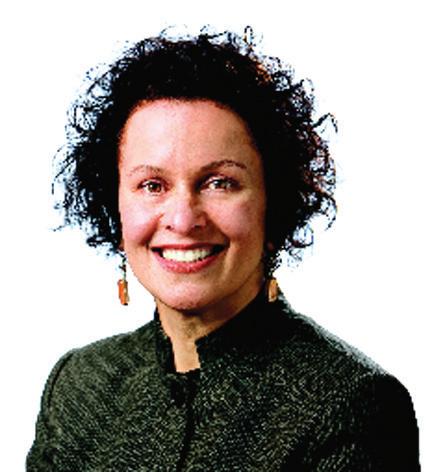
“Being part of the Greens NSW campaign has been a huge learning curve. The next few weeks are going to be a wild ride, but there are some very intelligent and passionate people supporting the Greens and I think our party has an exciting future,” she concludes.
Supporting skilled migration and political accountability
Mark Sharma
Independent, Watson (NSW)
Pitted against Sustainable Population Minister Tony Burke
On uranium exports to India, Mark believes that the Greens and Labor hold the key. “Basically both these parties the ‘60s when India was weak. Now in 2010, India dictates to the world. Even the USA has got the message and clinched a deal that was supported by over 85% of US politicians on both sides. Obama, Hillary Clinton, McCain, Joe Biden, Bush and every other major politician supported it. Ironically here in Australia, the Greens Senator Scott Ludlam doesn’t want it,” Mark quips.
A proactive Strathfield resident, he believes in taking action to fix a system that doesn’t work, rather than merely complaining about it. Likewise, Mark stands up for politics that is based on policies, rather than empty spin. Corruption and political accountability are major platforms he will fight in this election, with other pressing issues like extra hospital beds and better roads. He also believes in happy families.
If elected, Mark hopes to secure 2000 extra places for refugees from Sri Lanka and Afghanistan, is against internet censorship and is extremely vocal about getting a non-white person elected to the House of Representatives.
Fighting for brand Parramatta
Kalpesh Patel
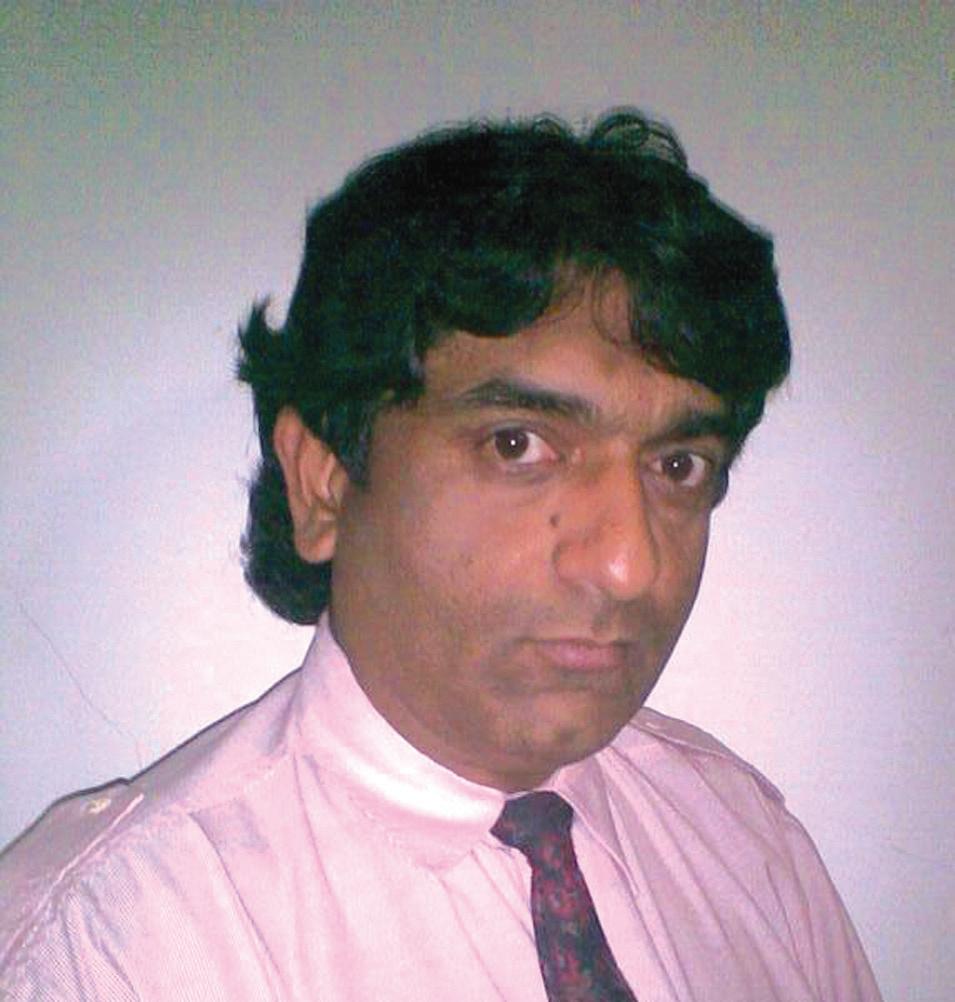
Independent, Parramatta (NSW)
Independent candidate Kalpesh Patel hopes to change the image of Parramatta, which took an international battering in
Continued on page 14
Continued from page 13 the wake of the fee paying student crisis. Community issues are his passion. A long-term local resident, he hopes to take a “stand as an integrating voice to represent the common interests of all ages and backgrounds.”
“As a well-educated individual with wide experience in multiple industries and strong organisational abilities, I am deeply committed to local issues”, he says.
“Parramatta is home to many ethnic minorities, who are skilled and enterprising. My vision is to work closely with them to improve services, community facilities, inter community relations and local job opportunities. By doing so, I wish to project the entire Parramatta Council area as a harmonious, congenial community that is safe and secure, and a great place to live”.
Patel believes there is an urgent need to curb antisocial elements, which are making after hours travel unsafe. “I realise people in other suburbs pay comparatively lesser premiums to insure their assets. Let’s help ourselves by working together through an effective community watch to reduce thefts and thereby slash our premiums”, he contends.
As well, Patel, who has a background in pharmacy, marketing and retail, hopes to boost the economy by creating and retaining more jobs in the area.
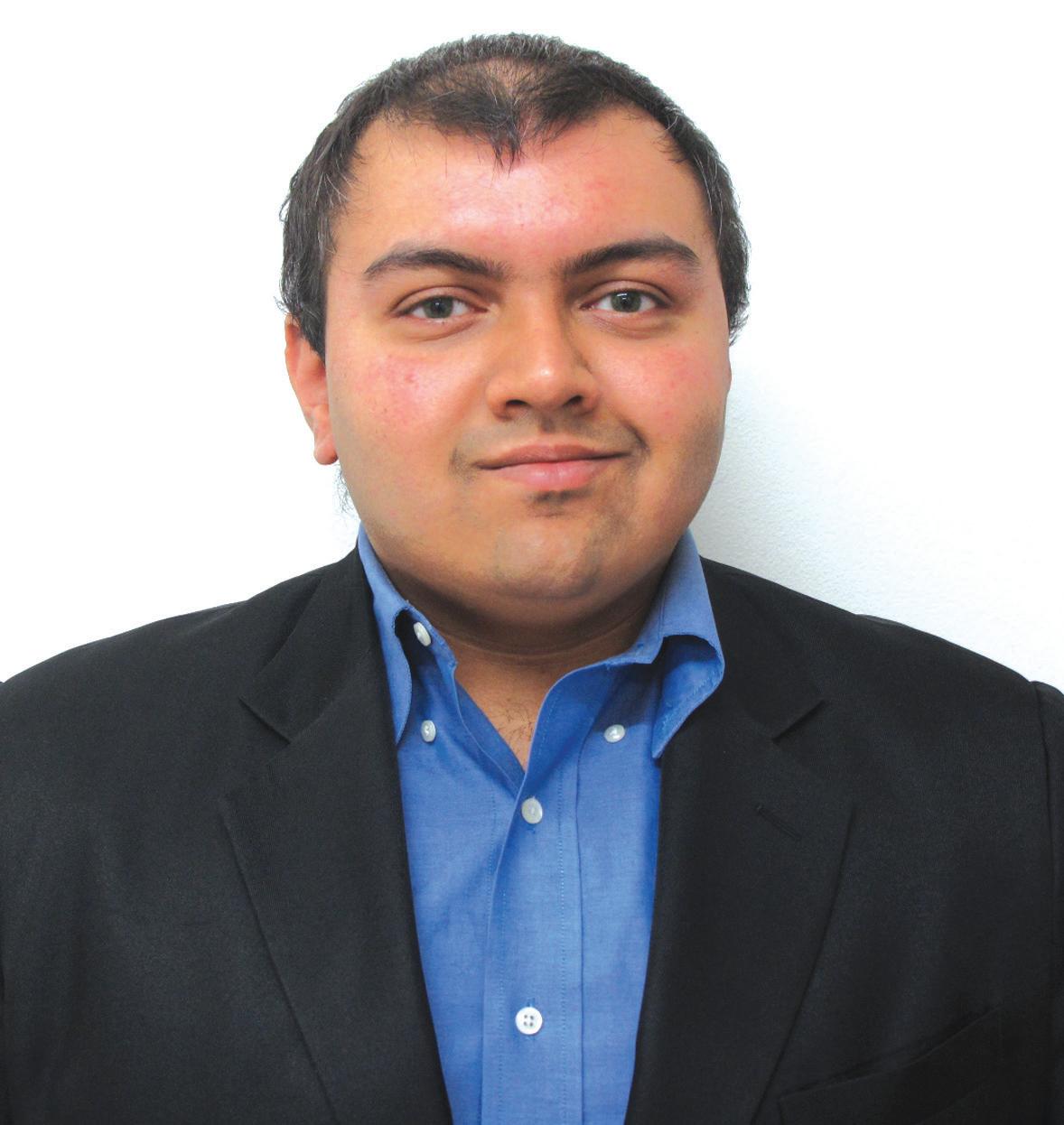
“We need to develop a harmonious equation between businesses and residents so they create a reciprocal and symbiotically sustaining equation.”
He also promises to tap into the multicultural environment by promoting local weekend fairs to boost business and healthier intercommunity relations.
Another top priority is to fight for proper care at local public hospitals. The extremely long waiting time for patients in crisis needs to be urgently reduced, he laments. Better infrastructure is also an issue that Kalpesh promises to focus on. Besides improving transport network, he hopes to make elevators mandatory at all railways stations to assist elderly, young families and less mobile. As well he will work for improved parking facilities and better bus linkages so public transport becomes a sustainable alternative.
Kalpesh is also very passionate about holistic development and thus believes more should be done to instill strong values among children. “Better partnerships between schools and parents would enhance the education system. They need the right learning, guidance and support to stay away from addictive habits, particularly substance abuse, which can destroy their future”, he opines.
In this context, he proposes an upgrade of parks and recreational facilities.
Kalpesh is already committed to further the interests of skilled migrants. “Most of them are equipped with appropriate qualifications and extensive experience. Yet when they arrive here, entering the workforce becomes a challenge. Circumstances force many to take up lower end jobs triggering disillusionment”, he regrets. The government needs to put simple but effective strategies in place for their early integration into industry circles, he suggests.
Similarly, Patel believes that international students are great assets to the domestic economy and not merely as revenue generators for education sector. Australia should seriously consider retaining them to augment our skilled workforce, he contends.
Campaigning for a green South Australia
Yesha Joshi
Greens, Lee (SA)
Adelaide activist and environment crusader Yesha Joshi is Greens candidate for the electorate of Lee in South Australia. Adjudged Sustainable Young Citizen of the Year at the Charles Sturt World Environment Day awards in 2009, Yesha has been raising awareness in the community in the areas of workers rights.
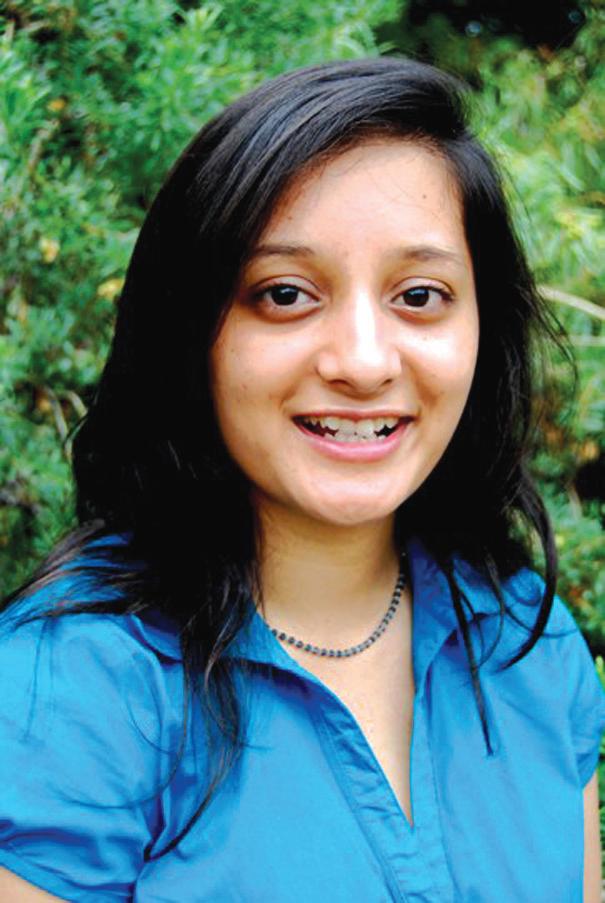
“I am passionate about being your voice for a better future in South Australia,” says the outspoken youngster. A member of SA Young Greens, Face Up to Climate Change is one of the latest campaigns she is working on. It involves engaging the public on the issue and allowing them the opportunity to speak their mind to the government.
“The idea is simple, we take a small white board, a marker and then we hit the streets, university campuses, the central market and hold Face up to Climate Change events”, she explains.
A roving radio presenter on work rights and social justice, Yesha believes that South Australia transitioning into a green economy is essential for the future prosperity and creating jobs in the local community.
She is committed to “saving the River Murray, pushing for a sustainable environment and campaigning for a green new deal on jobs to transition Australia into a clean, green economy.
I believe these are crucial issues that need to be addressed to ensure a safe and secure future for us all”, she endorses.
“There is a significant push for climate action throughout Australia. National events such as Youth Decide, National Climate Change rally and the Power Shift July 2009 Conference are just a few examples of how everyday people are coming together to collectively ask their governments to act on climate change by reducing CO 2 emissions and provide more green collar jobs for a green economy- an economy that takes into account the cost of the environment and the social sector”.
But the longer the debate stalls about the effects of climate change, it is the workers, regrets Joshi, who will be at a loss as the world’s biggest economies shift towards modern and green industries, such as solar, wind, and wave power generation.
The cost of action, she firmly holds is less than the cost of inaction. Debates may rage on and on but in the end it is what we as a growing community do about these issues that really matters, she argues.
Standing for sustainability and for youth affairs
ALEX BATHAL
Greens, Batman (Victoria)
“I’m running so Batman voters have an alternative to the coal and uranium fuelled agendas of our sitting member. I’ll work for sustainable solutions to the challenges we face; for a safe climate, local jobs, quality education and health services”.
Alexandra Kaur Bathal lives in Preston, Victoria, with her partner and two sons. She first moved into the Darebin area in the early 1990s. Alex comes from a mixed-race migrant background. Her father arrived in Australia from India in the early 1950s to study medicine and her mother’s family is from the Geelong region. She has been involved in helping Indian students who’ve been affected by violence or robbery over the past four years. Last year she co-authored a major study on international student safety in Melbourne.
As a social worker, Alex has worked with families and local communities in Melbourne’s northern suburbs for the past 20 years, and during this time, she has specialised in helping young people. She is currently doing a PhD exploring the experiences and ideas of Australians about climate change.
Alex has served on two council committees, the Darebin Environment Reference Group (2005-2007) and the Darebin Ethnic Communities Council. She has been involved with 10 local community organisations, most recently as spokesperson of the South Preston Residents’ Association.
As a social worker, she has been an advocate for social justice and community safety and is also a supporter of refugees in the community. As a member of the Greens she is a passionate supporter of a nuclear-free Australia and is involved in local and national environmental campaigns. At home she enjoys gardening, cycling and live music – she plays the viola.
“This is the third time I’ve run as the Greens candidate for Batman. My first campaign was in 2001 and I ran again in 2004. More recently in 2006, I stood for the state seat of Northcote. Over this time the Greens vote in the Darebin area has steadily grown, and I’ve every reason to believe this trend will continue this year,” Alex says.
“If ever there was a time for a new way of facing up to the mounting pressures on our community, it is now. All around us we see evidence that these are challenging times. The demands of climate change and rapid growth are bearing down upon us but there is no co-ordinated or sustainable plan to deal with them. Federal governments – both Labor and Liberal – have failed us on emissions controls, on affordable housing and on the effective delivery of local jobs and services. It’s clear to me we need a new approach. From one end of the electorate to the other, I hear the people of our suburbs saying we need to make changes,” she claims.
In her party profile Alex explains why she is running for elections as a Greens candidate this time. “The Greens have the vision and the courage to act for fair and sustainable solutions to the challenges we face. If we work together, there are huge opportunities for our community. In Darebin, we stand to gain a lot if the federal government takes the necessary steps to put a price on carbon, if it makes the shift to renewable energy and protects Australia’s precious water and land against the impacts of climate change. We will have cleaner air, quieter streets and more secure food and water supplies,” she writes.
“We will also see the regeneration of our local manufacturing sector as renewable energy industries set up in our industrial estates. This means an immediate boost in the numbers of sustainable local jobs, and a boost to the economy that can help pay for quality education and health services in this region. These are all part of the Greens vision - I’m proud to be running for a party that always puts people and their wellbeing first”.









